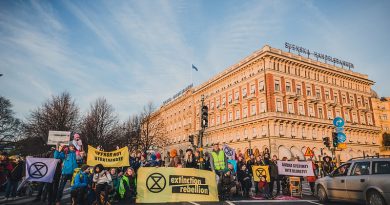South Korea’s Democracy is Stable, For Now
Joseph Brennan
Managing Editor
On January 26, 2025, South Korean President Yoon Suk Yeol was indicted on charges of insurrection. Yoon’s charges make history as he is the only South Korean president to have been indicted while in office. Moreover, the President declared martial law prematurely. According to NPR, the South Korean constitution allows for the president to declare martial law, but only in times of war and other states of emergency to keep order. Additionally, Yoon is rumored to have been directing a rebellion during the six hours South Korea was under martial law. His rationale for these actions is that there was an active infiltration of pro-North Korea and anti-state personnel within the government, states Reuters. This ‘rebellion’ left South Koreans with a bitter remembrance of the military dictatorships of the 1960s-80s, along with a looming question: how stable is their democracy?
South Korea, as many other countries in the world, is currently experiencing a flare of far-right ideology, says the Australian Institute for International Affairs(AIIA). The right-wing party in the Republic of Korea (ROK) is the People Power Party (PPP), which unsurprisingly defended their president by opposing his impeachment and organizing protests. However, the PPP is not new to power. When Yoon took office, he installed PPP members into every level of government. Since the Korean War, the far-right has been known to have a “conservative hegemony” on politics in South Korea, furthers the AIIA. Now, this hegemony is relying on conspiracy theories to reach its audience.
The PPP, and its twisted belief of North Korean interference in their government, is based on a selection of far-right YouTube videos and conspiracy theories, as discussed in Foreign Affairs. In their view, there is always a possibility of infiltration into the government, however, currently it is only rumored. Moreover, the PPP has chosen to ignore known conservative journalists, including ones who opposed Yoon’s declaration of martial law. Foreign Affairs continues saying that “the South Korean far right is not just Yoon’s political base. It is also emerging as the base of his party.” The PPP, what is supposed to be a conservative party, has latched on to President Yoon and his ideology, instead of letting go and bringing this extremist flare back to neutrality.
Following the impeachment of Yoon, Han Duck-soo, the prime minister and a fellow PPP member, took place as acting President. However, one of his first duties was to sign off on the appointments to the Constitutional Court. The court typically has nine sitting judges, but currently it only has six. He refused, putting the court’s ability to review Yoon’s initial impeachment in danger, as the decision to uphold the impeachment requires six votes meaning any rejection would save Yoon. Ultimately, Han was impeached. However, this time the National Assembly decided the number of votes to impeach Han was lower, to which the PPP protested. Han commented on the matter stating that he would step down from his duties as to “not add to the chaos,” per BBC. Next in line to the presidency was the finance minister, who allowed two of the three appointments, vetoed a bill which would have allowed special counsel to open an investigation into Yoon, and remains the acting President, says the Korea Herald. These constant changes not only place an emphasis on the South Korean economy, but also on the population.
It is no surprise that the debate about South Korea’s democracy has come into the spotlight. The survival of the democratic ROK rests on those in the government. The current, but ever-closing, power vacuum in South Korea could lead to a resurgence of poorly remembered military leadership in the country. However, optimistically, it could also lead to a stronger democracy. If the PPP ceases to make extreme policy and governmental decisions based on unsubstantiated conspiracy theories found in YouTube videos, the democracy of the ROK has a far greater chance of existing. Even still, the Democratic Party of Korea (DP), the leading opposition party, must continue to abide by the law, not making shortcuts in order to oust deemed ‘insurgent’ political leaders.
Image courtesy of Getty Images.

